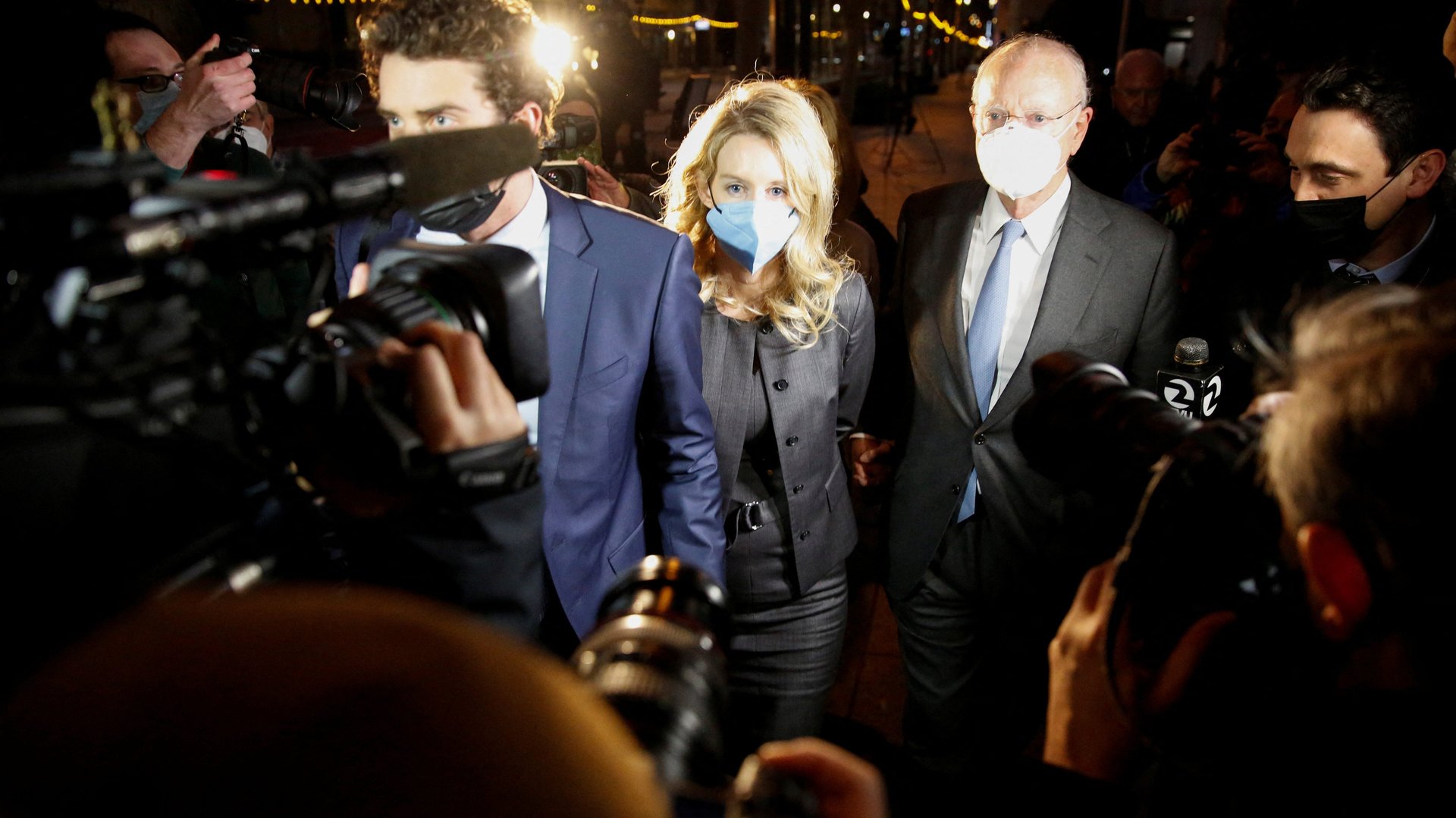The Theranos trial was a pop culture phenomenon
When Theranos founder Elizabeth Holmes first showed up to her fraud trial in September, a small group of self-described fans donning black business suits gathered outside outside the San Jose federal courthouse. It may not have been the sort of fame she’d hoped for, but Holmes had managed to embed herself in American culture.


When Theranos founder Elizabeth Holmes first showed up to her fraud trial in September, a small group of self-described fans donning black business suits gathered outside outside the San Jose federal courthouse. It may not have been the sort of fame she’d hoped for, but Holmes had managed to embed herself in American culture.
Holmes was found guilty on four counts of fraud on Jan. 3 for deceiving investors in Theranos, which promised to revolutionize blood testing using a machine that was said to require just a few drops of blood. She faces up to 20 years in prison for each count.
The downfall of Theranos was seen as indictment of Silicon Valley’s “fake it ’til you make it” culture, and captured the public’s attention thanks in part to a number of books, podcasts, and television specials that closely followed the story. Following the verdict, there will be films and TV series too, with big-name actors lined up to play Holmes.
Holmes is a larger-than-life figure
Holmes is far from the first high-flying Silicon Valley founder to see their downfall transfer to the screen. The story of WeWork’s Adam Neumann, for example, was chronicled in a recent Hulu documentary, and is the subject of a forthcoming book, The Cult of We.
But Holmes had a unique way of capturing the public’s attention. A female founder in the male-dominated world of Silicon Valley, she favored black turtlenecks to emulate Apple founder Steve Jobs and seemed to lower her voice to be taken more seriously. She pitched Theranos successfully to a web of high-profile public figures, including Rupert Murdoch, the family of former US education secretary Betsy DeVos, and Patriots owner Robert Kraft. US president Joe Biden hailed Theranos as an inspiration when he visited the lab as vice president in 2015.
When her company was exposed as fraudulent, Holmes’ star power grew larger.
She inspired scores of Halloween costumes in the years after her company dissolved. Even following her conviction this week, Theranos merchandise was selling for hundreds of dollars on eBay.
Serena Shahidi, who often posts about Holmes on TikTok, explained to Business Insider in September why there seems to be so much interest in the disgraced startup founder: “I guess there’s empowerment in the idea of having a female villain because that’s typically something that’s like very taboo,” she said. “There is something kind of progressive about the idea that a woman in the news isn’t playing by anyone’s rules.”
Books, podcasts, and television documented Theranos’s downfall
Writers and producers were quick to recognize the public’s captivation in Holmes, documenting her rise and fall in successful books, podcasts, and television shows. Wall Street Journal reporter John Carreyou wrote a book, Bad Blood, based on the investigation that led to criminal proceedings, and has been documenting the trial in a podcast. ABC News’s The Dropout, which has also been following the story, is currently among the top 50 Apple podcasts in the US.
HBO released a documentary on Holmes titled The Inventor in 2019, and several other film and television projects are slated for release in the coming year. Amanda Seyfried will play Holmes in a Hulu series based on the ABC News podcast of the same name. Apple TV+ has signed on to co-produce a film version of Bad Blood starring Jennifer Lawrence, a project that has been in the works for years.
Could a Holmes autobiography be on the horizon?
The enduring interest in Theranos likely means more film and television projects are on the way. Even a Holmes autobiography might be possible: She reportedly pitched a book to lawyer and agent Bob Barnett back in 2016, but it never materialized. Martha Stewart wrote a business handbook while under house arrest for insider trading—why not Elizabeth Holmes?
Keith Urbahn, the founding partner and president of Javelin, a literary agency in Washington, is doubtful such a deal would get off the ground now that she has a conviction to her name. “The idea that any publisher would outlay an advance, and give her a sizable deal is ludicrous. It wouldn’t happen,” he says. Publishers interested in a Holmes autobiography could enter tricky legal territory with Son of Sam laws, which prohibit convicted criminals from profiting off of movies, books, or television productions about their crimes.
“I don’t doubt that Elizabeth Holmes has her fans,” Urbahn says, “but I think a lot of publishers are going to have a hard time stomaching the idea of giving a person who misled investors and the public about her product, and her company, a sizable advance.”